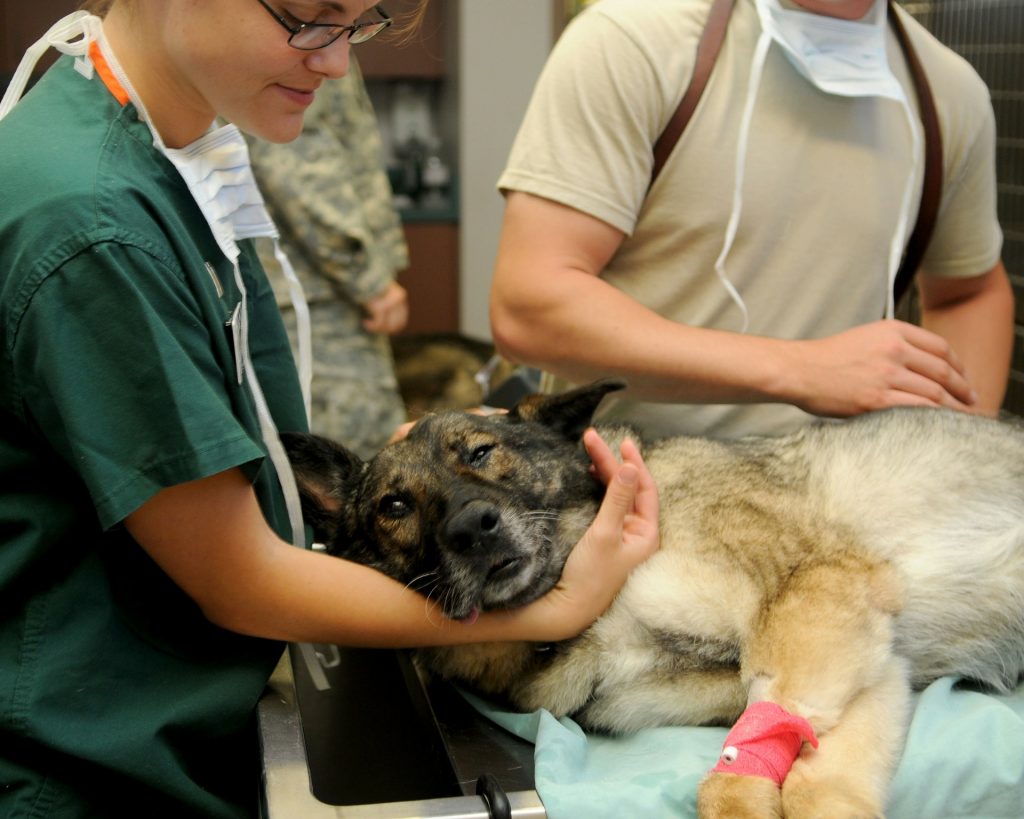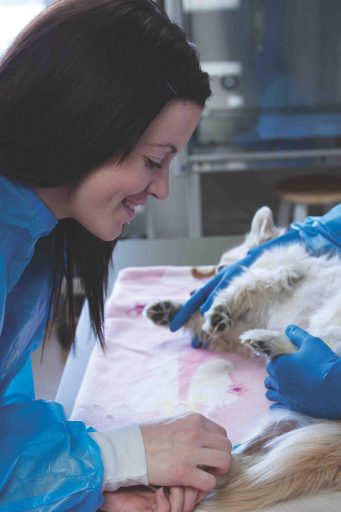
Chemotherapy is the use of one or a combination of drugs to treat cancer. This form of treatment can be used alone but is often used in conjunction with surgery and/or radiation therapy to help:
Chemotherapy drugs work by preventing cancer cells from growing and dividing, eventually killing them. Unlike radiation therapy that targets a particular area of the body, chemotherapy works on the whole body.
With that said, chemotherapy drugs cannot distinguish between cancer cells and normal cells, which means damage to normal cells will occur during treatment. However, the good news is, normal tissues will continue to grow and repair themselves, so any damage caused by chemotherapy is rarely permanent.
Chemotherapy drugs are extremely potent so it’s advised that a veterinary oncologist, board-certified in medical oncology, be in charge of administering chemotherapy. Medical oncologists have the specialized knowledge and expertise to choose the appropriate chemo drugs, dosages and treatment protocols.
And although particular chemo drugs have proven to be more effective on certain types of pet cancers, they are usually chosen on a case-by-case basis to ensure the highest quality of life for the pet, during and after treatment.
There are several ways to administer chemotherapy drugs: orally by pill, intravenously, directly into a body cavity such as the chest or bladder, directly into muscle, or injected into the spinal fluid.
Most pets undergoing chemotherapy do not have to be hospitalized and instead are treated as outpatients. Chemotherapy protocols will vary depending on the type of cancer being treated — some pets may be given chemo drugs once a week and others once every three or four weeks.
Most chemotherapy drugs are administered intravenously and treatments usually last anywhere from five to 45 minutes. Occasionally, treatments may be administered more slowly over several hours.
Unlike humans, side effects from chemotherapy are relatively mild in pets. Much lower doses of chemotherapy drugs are used on pets versus people and the treatments are spread out over a longer period of time.
Common side effects include vomiting, diarrhea, loss of appetite and loss of energy. Hair loss is uncommon in most dogs but certain breeds including terriers and poodles may show more noticeable signs of hair loss. Bone marrow cells affected by chemotherapy drugs may cause the pet’s white blood cell count to drop, which can make him more susceptible to infection. If needed, there are medications available that can reduce the side effects caused by chemotherapy drugs.

Sources:
This page has been reviewed by our Panel of Experts for accuracy. Our Panel of Experts is comprised of practitioners with varying specialties and perspectives. As such, the views expressed here may not be shared by all members of our Panel.
The content on this website is for informational purposes only and is not intended to be a substitute for professional veterinary medical advice, diagnosis or treatment.